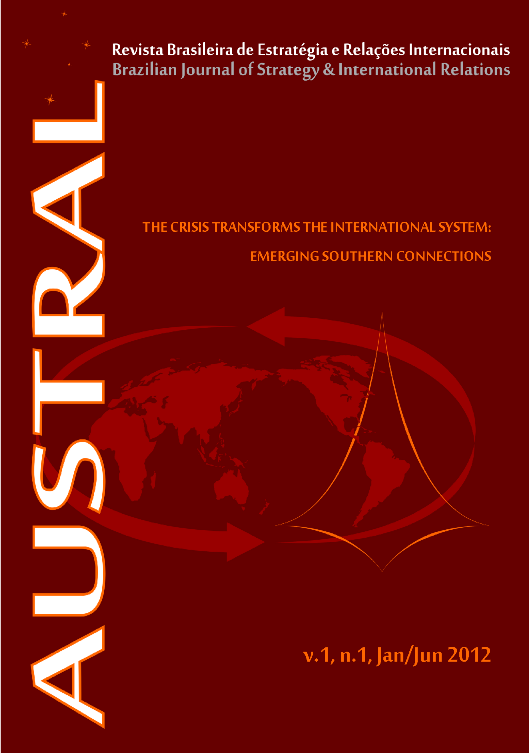SOUTH-SOUTH COOPERATION AND THE CHANGING ROLE OF THE GULF STATES
DOI:
https://doi.org/10.22456/2238-6912.27995Keywords:
Gulf States, South-South Cooperation, Gulf Cooperation Council,Abstract
This article assesses the role of the Gulf Cooperation Council (GCC) states (Bahrain, Kuwait, Oman, Qatar, Saudi Arabia and the United Arab Emirates) in the framework of South-South Cooperation. It charts the different phases of engagement between the Gulf States and other developing countries, and the shifting dynamics that underpinned them. These phrases demonstrated profound changes that reflected policymaking calibrations in response to domestic, regional and international catalysts. When read together, the internal and external forces that press upon the GCC States shape the analytical perspective of this article. Further, these internal and external pressures shaped the Gulf States’ contributions to South-South Cooperation, and framed the intra-regional and international realignments within which GCC engagements took place.


